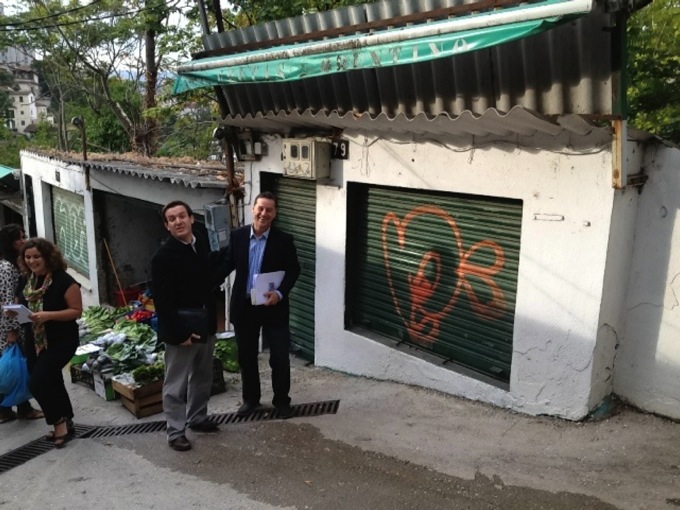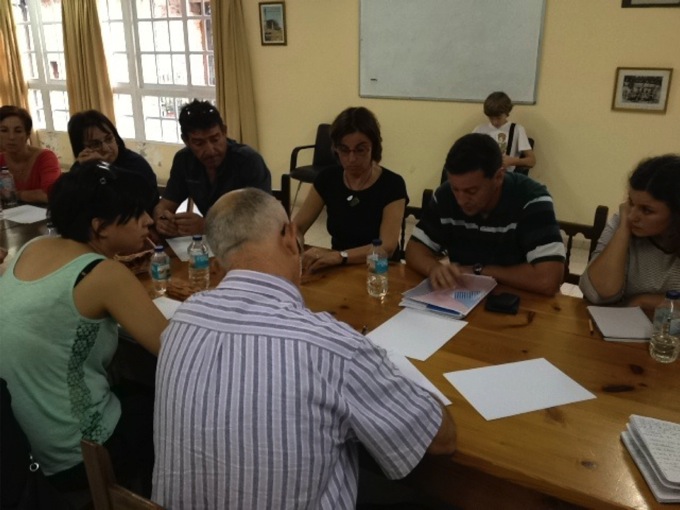Ourense / Opportunities and challenges
Sustainable Food Lab at the market
One of the most innovative projects promoted by Ourense Municipality is to implement a ‘Local Unit of Food and Nutrition’ in collaboration Ourense University’s curriculums in Food Science & Technology, Agricultural Engineering and Environmental Science. This so-called ‘Unit’ is not precisely defined yet. It intends to provide quality training, information on healthy and sustainable diets, food’s environmental footprint awareness, develop dissemination campaigns, panels and events, produce learning materials oriented to schools teachers, provide potential new farmers eco-friendly agriculture tools and resources, promote a certified label for Ourense products, network with local stakeholders involved in sustainable food, etc.
| Market Food Lab | Hands-on food lab located inside the market and animated by a mix of students may appeal the population passing by with all kinds of animations regarding the promotion of sustainable food. A new cooperation between students from the food sciences, tourism and business curriculums may be efficient to cover the whole topic of supply chain from farm to fork. This initiative could also attract younger people and student families in the market.A large program would recall activities of a joint public-private research centre. The breakthrough innovation is that the unit is planed to be based in one of the currently empty grocers shop in Ourense central market. The precise location has already been decided (see Market food lab). This strong orientation intends to promote ‘hand-on’ activities rooted in the daily living of the city, to have students designing and experimenting new solutions directly with the population passing by… This setting of the food unit point clearly towards form of Sustainable Food Experimentation Lab at the market rather than an academic disconnected from realities. The Market Lab may be confined to niche activities and faced with too much to achieve. But involving the student to engage with the population, prototype and test ideas and solutions directly on the spot at the very node where producers, retailers and consumers interact is for sure a guaranty of intense transversal and pragmatic action-research.
Small scale systemic experimentation
Ourenses’ municipality interest in promoting sustainable food has emerged recently but seems to be a strong initiative building on the particular place of food and food production in Galicia in general and for inhabitants of Ourense in particular. Therefore the city shows a slightly different situation compared to most of the other cities in the project: initiatives are currently starting targeting growing food on derelict land in 10 villages around; setting the conditions in each village for some volunteers to start a micro-farming activity; engaging elderly community there in a tasting and advisory food panel; implementing a direct delivery scheme to Ourenses’ centre and regenerating the traditional central market as a new place to buy and enjoy ‘Comete Ourense’, the future ‘Eat Ourense’ label covering and giving visibility to the whole project.
This initiative is small scale and achievable: their promoters at the municipality declare with a certain irony: “we can’t afford big projects, therefore we are aiming at changing the mentalities with small scale experimentations”
The setting of both the Market Food Lab and this Comete Ourense tentative short food scheme assumes a very promising attitude in terms of territorial development and governance of the municipality based on 2 particular characteristics.
The food production, distribution and consumption scheme assumes a systemic dimension. More than isolated initiatives along the sustainable local food chain, an overall strategy is proposed in order to synergize and generate a micro local sustainable food system;
This holistic orientation may be risky as beyond municipalitys’ skills to catalyse an integrated project, the chances to set an entire new system at ones without failures are limited. This risk is minimized by the fact that all the implementation is small scale (limited number of garden farmers, light production), multiple (10 villages involved in synergy but experimenting in parallel) and experimental (progressive implementation, bottom-up involvement, progressive adjustments).
The combination of small scale, systemic and experimental characters makes these first steps of Ourense Municipality towards the path of sustainable food and despite its limits, a stimulating development to observe.
| Villages Project Groups | The high dynamic village of Seixalbo is the pilot of an experimental project pooling of unused land for market gardening. The organisation of such an innovative project relies on the cooperation between inhabitants that would rent or lend allotments to new farmers of different kinds: urban citizens that want to grow food or need complementary incomes, unemployment people, hobby farmers… In case of success, 10 other villages selected for their food production potential could be involved. The Village Project Groups based on local authorities, neighbourhood, cultural associations and citizens may ensure strong roots in the territory and user participation.
